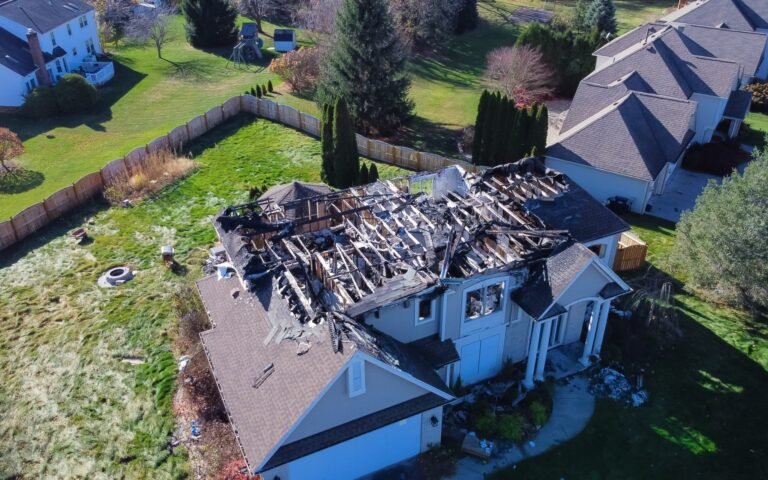Mortgage Loan Modifications and Foreclosure Defense in Tampa Bay
Understanding Mortgage Loan Modifications
When homeowners in Lakeland or throughout the Tampa Bay area experience financial hardship, one of the most common challenges they face is the possibility of losing their home through foreclosure. Loan modification programs exist to help borrowers in this situation by adjusting the terms of their existing loans to make payments more manageable.
A mortgage loan modification is not a new loan but rather a change to the existing one. It may involve lowering the interest rate, extending the loan term, or rolling past-due payments into the loan balance. The lender’s goal is to create a payment structure that allows the homeowner to stay current while maintaining ownership of the property.
Modifications are often available through private lenders, federal programs, or court-supervised processes. However, not all borrowers qualify automatically, and each lender evaluates applicants based on income, hardship, and repayment potential. For homeowners behind on payments or facing foreclosure, understanding how loan modification interacts with bankruptcy law, particularly Chapter 13, can make a significant difference.
The Foreclosure Process in Florida
Foreclosure in Florida is a judicial process, meaning the lender must file a lawsuit in court to repossess the property. After the homeowner receives notice, they have a limited time to respond. Should the homeowner fail to present a defense, the lender has the right to secure a final judgment and auction the property.
Because foreclosure moves through the court system, time becomes an important factor. A missed response deadline or incomplete paperwork can result in the loss of legal rights. This is where working with a qualified bankruptcy attorney can help preserve options and delay or even prevent foreclosure while alternative solutions are explored.
For residents in Lakeland and across the Tampa Bay region, foreclosure defense strategies often combine negotiation with lenders, participation in modification programs, and, when appropriate, filing for Chapter 13 bankruptcy to restructure debt and cure arrears.
How Chapter 13 Bankruptcy Protects Homeowners
Chapter 13 bankruptcy provides a structured repayment plan that allows debtors to catch up on missed mortgage payments over time. Unlike Chapter 7, which involves liquidating assets to pay creditors, Chapter 13 focuses on reorganizing debt. This type of bankruptcy is especially beneficial for homeowners who wish to retain their property and manage arrears through court protection.
Once a Chapter 13 case is filed, the automatic stay goes into effect, immediately stopping foreclosure proceedings, collection calls, and wage garnishments. The debtor then submits a repayment plan, typically lasting three to five years, during which they can pay back past-due mortgage amounts while continuing regular monthly payments.
This legal protection not only halts foreclosure but also gives the homeowner breathing room to work with their lender. Often, the Chapter 13 plan and a loan modification can function together, providing both immediate relief and long-term stability. The court-supervised environment ensures that creditors follow legal procedures and that repayment terms are fair and transparent.
Combining Loan Modification and Chapter 13
A loan modification can often be negotiated during an active Chapter 13 case. This approach allows borrowers to benefit from bankruptcy protections while pursuing a permanent change to their mortgage terms. The bankruptcy court may approve a trial modification or structured plan to test affordability before final approval.
This dual strategy is particularly effective for those whose financial hardship stems from temporary income loss, medical expenses, or economic fluctuations. Chapter 13 creates a legal framework that buys time for negotiation and prevents creditors from proceeding with foreclosure during the process.
If the modification is approved, the new payment terms replace the old mortgage structure, and the Chapter 13 plan may be adjusted accordingly. For many homeowners in Lakeland and surrounding areas, this provides a viable path toward keeping their homes while restoring financial stability.
The Role of a Bankruptcy Attorney in the Process
Navigating both loan modification and Chapter 13 bankruptcy requires careful coordination. An experienced attorney familiar with Tampa Bay’s foreclosure landscape can help homeowners understand their options, prepare comprehensive documentation, and communicate effectively with mortgage lenders.
Each lender has different approval criteria, and missing a single form or deadline can cause delays or denials. Additionally, the bankruptcy court requires strict compliance with filing requirements, making professional guidance especially valuable. A knowledgeable attorney can ensure that the modification request and bankruptcy plan align, maximizing the chance of success.
Restoring Financial Stability in Tampa Bay
For many homeowners, facing foreclosure is both financially and emotionally overwhelming. Yet, foreclosure does not have to mean the end of homeownership. Loan modifications, repayment plans, and Chapter 13 filings all provide legal and practical tools to help individuals regain control over their finances.
In Tampa Bay and Lakeland, homeowners who act promptly have the best opportunity to protect their property and rebuild their financial future. By taking advantage of the legal protections available under bankruptcy law, borrowers can stop foreclosure, reduce stress, and create a realistic recovery plan.For experienced legal assistance with loan modification, foreclosure defense, or Chapter 13 bankruptcy in the Tampa Bay area, contact Weller Legal Group, a Lakeland bankruptcy attorney dedicated to helping Florida homeowners protect their homes and achieve long-term financial relief.
Disclaimer
This article is intended for informational purposes only and does not constitute legal, financial, or professional advice. Mortgage loan modifications, foreclosure defense options, and bankruptcy laws — including Chapter 13 — may vary based on individual circumstances and are subject to change under federal and Florida state regulations. Reading this content does not create an attorney–client relationship with Weller Legal Group or any referenced legal professional.
Homeowners facing foreclosure or financial hardship should consult directly with a licensed and experienced bankruptcy attorney in Florida to receive guidance tailored to their specific situation. Do not rely solely on the information in this article when making decisions that may affect your legal rights or property ownership.
Any references to services, programs, outcomes, or legal strategies are provided for general educational purposes and should not be interpreted as guarantees of approval, case results, or eligibility. Always seek individualized legal counsel before taking any action regarding foreclosure, loan modification, or bankruptcy filings.






